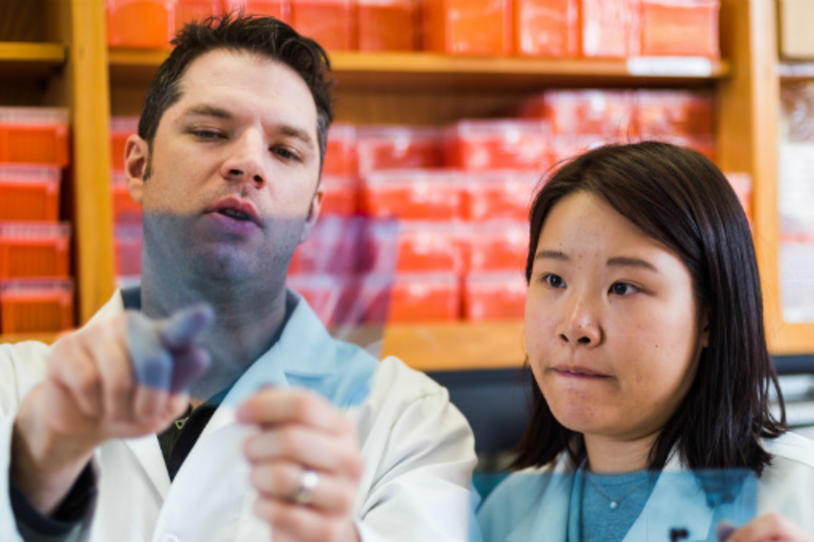
In late April, researchers met to discuss the latest news in neurology and Parkinson's disease (PD) at the annual American Academy of Neurology meeting in Boston. Presenters shared results from trials of potential treatments to better control motor symptoms and to correct dysfunction caused by genetic mutations associated with PD.
Here are a few highlights from the meeting:
Voyager Therapeutics presented data on its gene therapy called Y-AADC01. As those with Parkinson's progress into later stages of the disease, they may experience "off" time (when levodopa is not working as well) or side effects such as dyskinesia (involuntary movements).
Y-AADC01 was designed to avoid "off" episodes and dyskinesia by increasing ADCC, a chemical that converts levodopa into dopamine.
Individuals with advanced PD in Voyager's ongoing small Phase I trial had increased dopamine activity and a two-hour reduction in average "off" time. Voyager will further evaluate the safety and efficacy of this therapy in another Phase I clinical trial, which is not yet recruiting.
The Michael J. Fox Foundation funded early stages of this work prior to 2014, when Voyager entered into an agreement to advance its study.
______________________________________________________________________________
Britannia Pharmaceuticals Ltd. is testing a new form of an available drug called apomorphine, which is used as a "rescue" therapy to quickly alleviate symptoms during "off" episodes. The currently available form requires an injection and is associated with side effects such as nausea and low blood pressure. This new formulation is administered continuously under the skin through a portable infusion pump device. Although this delivery method has been used outside the United States, Britannia is the first to test the safety and efficacy of this formulation in a rigorous clinical trial.
Results from a Phase III trial showed that people with advanced PD, whose symptoms were not well-controlled on oral medications, experienced less "off" time on the apomorphine infusion vs. placebo.
______________________________________________________________________________
Rytary is a capsule that contains both immediate and extended-release levodopa with carbidopa; it was approved to treat Parkinson's motor symptoms in 2015. Impax Laboratories, the manufacturer of Rytary, is testing a similar but optimized version of Rytary called IPX203. Researchers presented findings from a Phase II study comparing individuals with PD who took an immediate-release formulation of carbidopa-levodopa, Rytary or IPX203. Overall, IPX203 provided greater benefit compared to the other two treatments. Impax is currently recruiting for another Phase II trial to further evaluate the effects of this new therapy.
______________________________________________________________________________
Parkinson's genetics research has taught us that PD shares some underlying biology with other conditions. For example, mutations in the GBA gene are associated with increased risk of both Parkinson's disease and Gaucher disease, a disorder where fatty substances build up and cause enlarged organs. The GBA1 gene directs production of the GCase protein, which plays a role in the cells' garbage disposal system and helps break down substances called glycolipids. (Read more about GBA1 and Parkinson's disease.)
Many researchers are exploring GCase activity in the hopes of providing a new therapeutic approach to those with PD. Dimitri Krainc, MD, PhD, of Northwestern University, discussed his lab's work on compound 758, a potential drug agent that increases GCase activity. Although this pre-clinical work is in the early stages, GCase levels can be measured in the blood and spinal fluid, allowing researchers to track compound 758's impact on the target.
Stay tuned to our blog for more research updates as they become available.
Sign up or log in to Fox Trial Finder to learn more about how you can participate in trials and studies for Parkinson's.